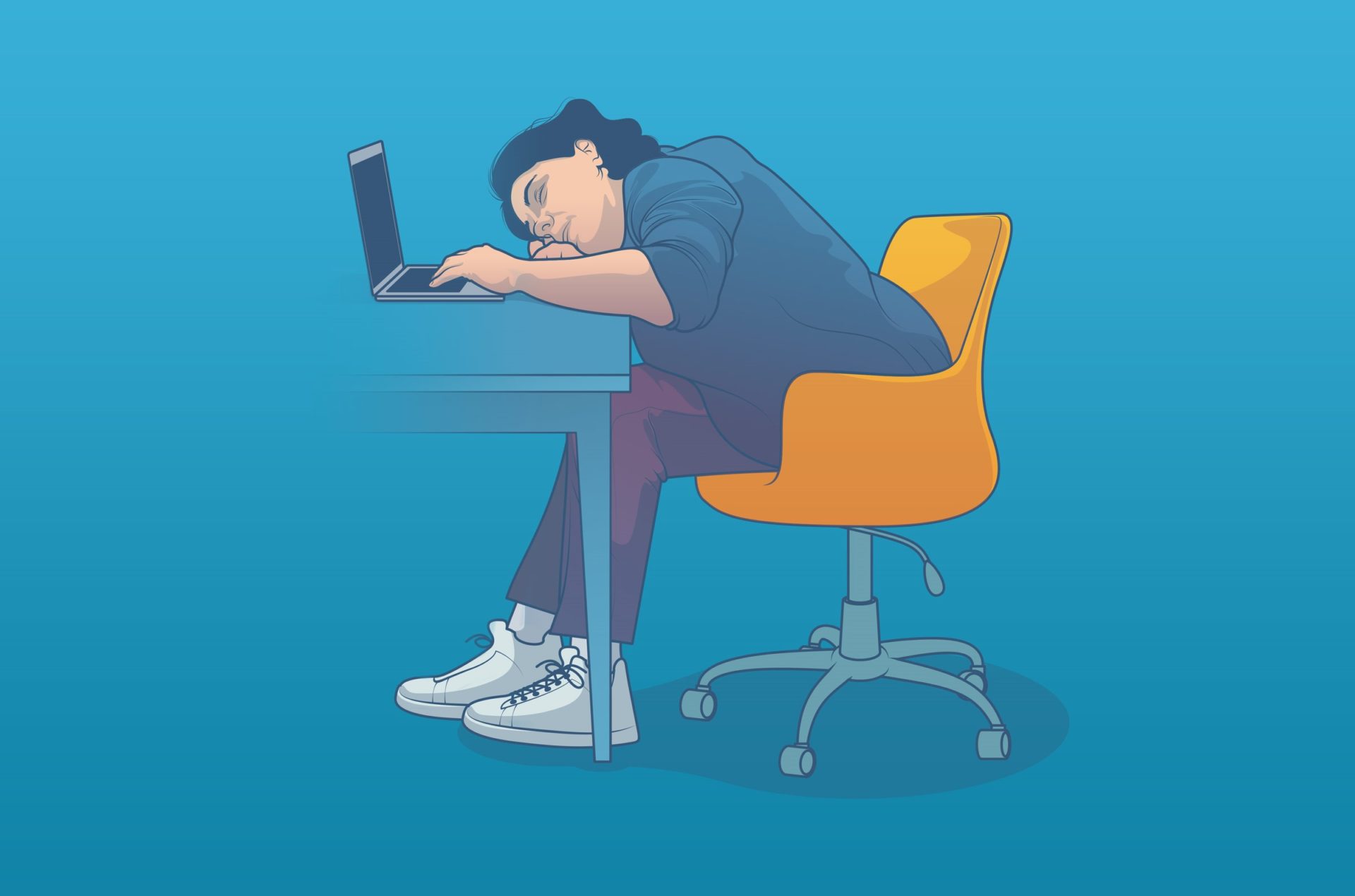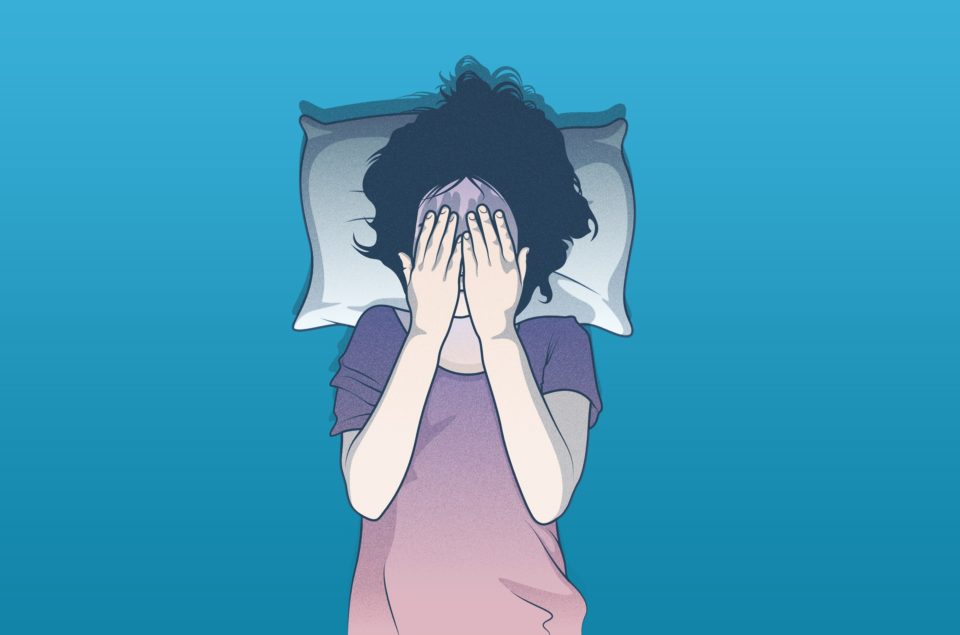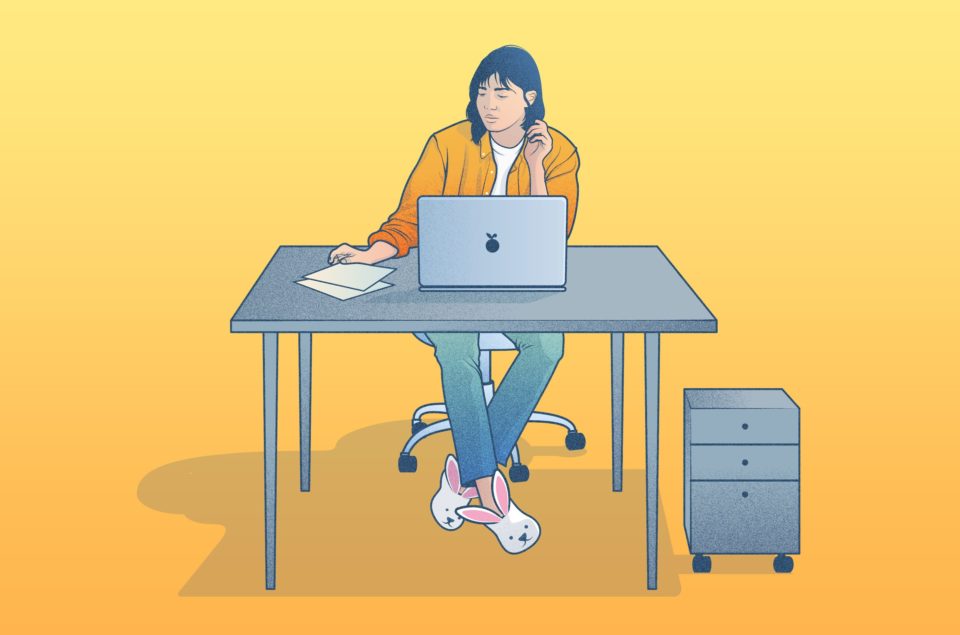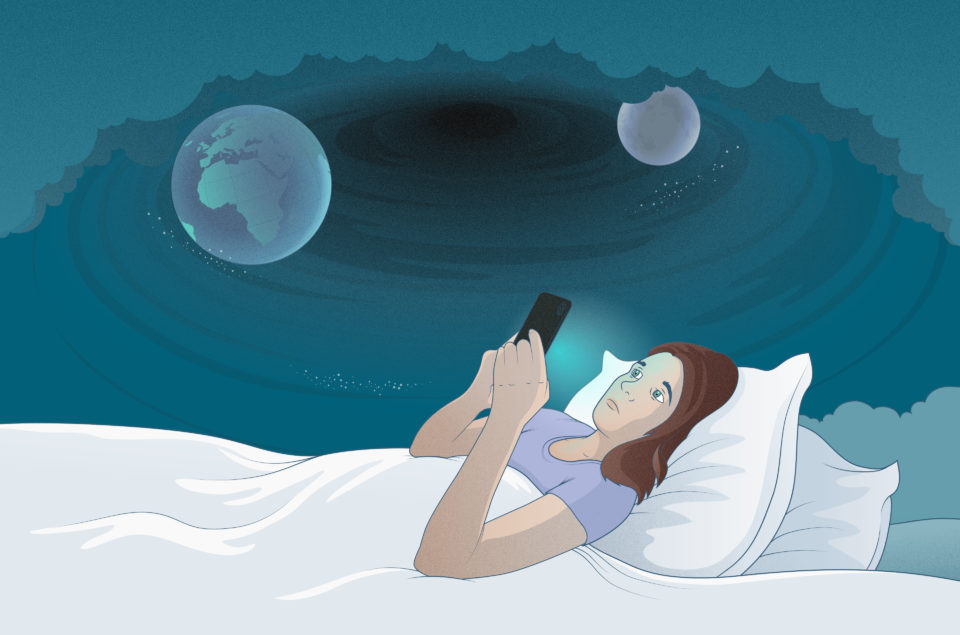Most people are familiar with insomnia, which keeps people from falling asleep, leading to frustrating nights spent lying awake and staring at the ceiling. But what about insomnia’s equally tiresome cousin, hypersomnia? This underdiagnosed sleep disorder keeps approximately 4-6% of the global population excessively sleepy all the time and tired during the day, adversely impacting their lives and health. Hypersomnia, many physicians agree, is not mentioned often enough. It’s time to shine a light on this sleep disorder and explore the symptoms, causes and treatments.
In this article, we cover:
What is hypersomnia?
Hypersomnia is defined as excessive daytime sleepiness, also referred to as EDS. Though its symptoms can be common, a formal diagnosis of hypersomnia is relatively infrequent. Being occasionally tired does not necessarily mean you have hypersomnia. To merit a hypersomnia diagnosis, you need to feel overwhelmingly tired during the day on a recurring basis, several times a week for at least three months.
Signs and symptoms of hypersomnia
- Excessive tiredness: A key symptom of hypersomnia is excessive daytime sleepiness, a feeling of tiredness that can take over your body and mind. It’s common for hypersomnia sufferers to take naps throughout the day but not feel refreshed.
- Longer sleep duration: Because they are constantly tired, people with hypersomnia can sleep longer, sometimes for 13-14 hours, and yet still not feel rested in the morning.
- Lack of alertness and concentration: Hypersomnia reduces cognitive function, making you feel less alert, less focused, and with hindered decision-making capabilities.
- Difficulty controlling emotions: When you’re excessively tired, you will have less function in the prefrontal cortex, which in turn reduces your control over the emotional part of the brain (the amygdala). This makes you more emotional and reactive, and more likely to feel irritated and anxious.
- Depression: Hypersomnia can also be linked to mental health issues, as both a symptom and a cause. When depression is a sign of hypersomnia, it is because excessive tiredness is impacting the amygdala, which can lead to feelings of depression. You are likely to have a harder time coping with everyday life; you may lose motivation and begin to isolate socially.
Insomnia vs hypersomnia: can you have both at the same time?
Hypersomnia and insomnia are two sleep disorders that have opposite symptoms. Hypersomnia is characterized by excessive daytime sleepiness and a tendency to fall asleep during the day, while insomnia is characterized by difficulty falling asleep or staying asleep at night, which can lead to excessive daytime fatigue.
However, it is possible for an individual to experience both hypersomnia and insomnia at the same time. In some cases, insomnia may lead to daytime sleepiness and fatigue, which can worsen hypersomnia. Alternatively, hypersomnia may interfere with the ability to fall asleep at night and exacerbate insomnia.
There are several potential causes of coexisting hypersomnia and insomnia. For example, an underlying medical condition, such as depression or anxiety, can contribute to both sleep disorders. Substance abuse or certain medications can also cause sleep disturbances that result in a combination of hypersomnia and insomnia. It is important to speak with a healthcare professional if you are experiencing both hypersomnia and insomnia, as they can help determine the underlying cause and provide appropriate treatment.
What causes hypersomnia?
Potential causes of hypersomnia include:
- Sleep disorders: Hypersomnia is most often caused by another sleep disorder. Obstructive sleep apnea (OSA) is the most common cause.Hypersomnia can also be caused by sleepwalking.
- Dysfunction in the central nervous system: A less frequent cause, a nervous system dysfunction due to a traumatic injury or tumors may lead to hypersomnia.
- Alcohol, substance use, medications: Alcohol and substance abuse may cause hypersomnia, triggering sleepiness during the day. Similarly, prescription medications with sedating side effects can cause it. Withdrawal from stimulants can also result in hypersomnia.
- Insufficient sleep syndrome: When a person consistently sleeps less than the recommended number of hours, they can experience insufficient sleep syndrome, which in turn can cause hypersomnia.
- Medical conditions: Neurological diseases such as Parkinson’s disease, epilepsy, and multiple sclerosis may cause hypersomnia.
- Psychiatric disorders: Mental health conditions, including depression, bipolar disorder, and seasonal affective disorder may cause hypersomnia. Depression can also be a symptom, depending on the patient and the underlying cause of their hypersomnia.
Sleep disorders, including hypersomnia, can be quite difficult to diagnose because they are often linked and dependent on one another. Diagnosis may be layered as medical professionals identify primary and secondary disorders and causes, all interconnected.
What about idiopathic hypersomnia?
Do you often feel extremely tired during the day, even after getting a good night’s sleep? Do you have trouble waking up, even after sleeping for a long time? If so, you might have something called idiopathic hypersomnia. This is a medical condition where you feel excessively sleepy during the day for no apparent reason. It’s different from feeling tired because you didn’t get enough sleep or from narcolepsy, which is another sleep disorder.
As its name suggests, research hasn’t been able to identify the cause of sleepiness in people with idiopathic hypersomnia. Some studies suggest that genetics, autoimmune disorders or dysfunction in the nervous system may be behind this disorder. However, more research is needed to understand what causes idiopathic hypersomnia and how to treat this rare condition that affects less than 1% of the population, according to the National Sleep Foundation.
It’s hard to know exactly how many people have idiopathic hypersomnia because it’s often misdiagnosed or not diagnosed at all. However, it’s believed to be not as common as another sleep disorder called narcolepsy, which has some similar symptoms.
Hypersomnia vs narcolepsy – what are the differences?
Hypersomnia and narcolepsy are two sleep disorders that share similar symptoms, such as fatigue and difficulty staying awake during the day, with sometimes no clear cause. They are both categorized as “central disorders of hypersomnolence” due to the hallmark symptom of excessive daytime sleepiness, which means sleeping more than usual or feeling excessively sleepy while awake. Unlike sleep disruption during the night, the excessive sleepiness caused by these conditions is not due to this factor.
However, narcolepsy has distinct characteristics that differentiate it from other similar conditions, including hypersomnia:
| Symptom/Feature | Idiopathic Hypersomnia | Narcolepsy |
| Daytime Sleepiness | Excessive and persistent sleepiness that is not relieved by naps | Sudden and uncontrollable episodes of sleep that occur at any time |
| Duration of Sleep | Long nocturnal sleep (usually > 10 hours) and/or long naps that do not relieve sleepiness | Irregular and fragmented nocturnal sleep, and short naps that temporarily relieve sleepiness |
| Cataplexy | Not usually present | Present in the majority of cases |
| Sleep Paralysis | Rare | Common |
| Hallucinations | Rare | Common |
| Automatic Behaviors | Uncommon | Common |
| Fragmented Sleep | Uncommon | Common |
| Changes in the Sleep Cycle | Absent | Present |
| Genetics involved | Absent in most cases | Present in the majority of cases |
| Age of Onset | Late adolescence or early adulthood | Typically before age 30 |
| Gender Differences | No significant gender differences | Slightly more common in men |
| Treatment | Stimulants, wake-promoting agents, and lifestyle changes | Stimulants, antidepressants, and sodium oxybate |
It is essential to note that the table above is not exhaustive, and a correct diagnosis of either condition should be made by a qualified healthcare professional. As the two disorders can have overlapping symptoms, it is crucial to undergo a thorough evaluation to differentiate between them.
Diagnosing and coping with hypersomnia
If you feel you can relate to the symptoms listed above and suspect that you may suffer from a sleep disorder, you should consult your doctor. A physician can review symptoms along with a medical history, and run appropriate tests to reach a diagnosis and determine an effective treatment plan.
Besides treating underlying causes, there are several approaches that can be taken to manage and reduce the symptoms of this disorder:
- Lifestyle changes: Making changes to one’s lifestyle can be helpful in managing hypersomnia. This can include establishing a morning routine, avoiding caffeine and alcohol, and engaging in regular exercise. A healthy diet and stress management techniques, such as yoga or meditation, may also be beneficial.
- Behavioral therapy: Cognitive behavioral therapy (CBT) can be effective in treating hypersomnia. This type of therapy can help individuals identify negative thought patterns and behaviors that may be contributing to their sleep disorder and develop strategies to change them.
- Sleep hygiene: Good sleep hygiene practices, such as establishing a consistent sleep schedule, avoiding electronic devices before bedtime, and creating a comfortable sleep environment, can help improve the quality of sleep and reduce symptoms of hypersomnia.
- Light therapy: Exposure to bright light in the morning can help regulate the body’s natural sleep-wake cycle and improve symptoms of hypersomnia. This approach may be particularly effective for individuals with seasonal affective disorder.
- Daytime work schedule: individuals who experience hypersomnia may benefit from refraining from working late at night or overnight. This is because working on night shift schedules can disturb a person’s circadian rhythms and has also been linked to the development of hypersomnia.
- Find support: besides CBT, it is recommended that you educate family and friends about your condition. Planning social events earlier in the day can also be beneficial as it avoids pushing back bedtime. Additionally, support groups, online communities, or message boards can aid in coping with the emotional toll of hypersomnia. These resources may also offer guidance on managing the impacts of hypersomnia on work, school, and relationships.
- Medication: to promote alertness and decrease excessive daytime sleepiness, medication for hypersomnia is typically combined with behavioral modifications. It is crucial to note that medications for hypersomnia should only be taken under the supervision of a physician or sleep specialist. The specific medication prescribed is determined by the underlying cause of the symptoms, which can either be a sleep disorder (primary hypersomnia) or a different underlying health condition (secondary hypersomnia).
It’s also recommended to avoid driving or any activities that could be dangerous if you feel sleepy in order to avoid harming yourself or others.
Understanding hypersomnia and its impact on your life quality
Although hypersomnia isn’t a life-threatening condition, it may impact a person’s quality of life. Living with this rare sleep disorder can be challenging, but there are many ways to cope with it and improve your wellbeing, both physical and mental. By working with your physician to find the right treatment plan and making lifestyle changes to prioritize rest and relaxation, you will be able to manage your symptoms and enjoy more wakeful, productive days.
Summary FAQs
Insomnia vs hypersomnia: can you have both at the same time?
It is possible for an individual to experience both hypersomnia and insomnia at the same time. In some cases, insomnia may lead to daytime sleepiness and fatigue, which can worsen hypersomnia. Alternatively, hypersomnia may interfere with the ability to fall asleep at night and exacerbate insomnia.
What is idiopathic hypersomnia?
This is a medical condition where you feel excessively sleepy during the day for no apparent reason. Research hasn’t been able to identify the cause of sleepiness in people with idiopathic hypersomnia. Some studies suggest that genetics, autoimmune disorders or dysfunction in the nervous system may be behind this disorder.
Hypersomnia vs narcolepsy – what are the differences?
Excessive daytime sleepiness that is not relieved by naps or long nocturnal sleep is the main difference between hypersomnia and narcolepsy. However, fragmented sleep or changes in the sleep cycle are only observed in narcolepsy, and sleep paralysis, cataplexy, hallucinations, and automatic behaviors are very rare in hypersomnia.
How to stop feeling sleepy all the time?
Lifestyle changes (avoiding alcohol and caffeine, establishing a morning routine or exercising regularly, among others), CBT, following sleep hygiene best practices, light therapy, avoiding night shifts at work and finding support in friends and family can help cope with hypersomnia.










